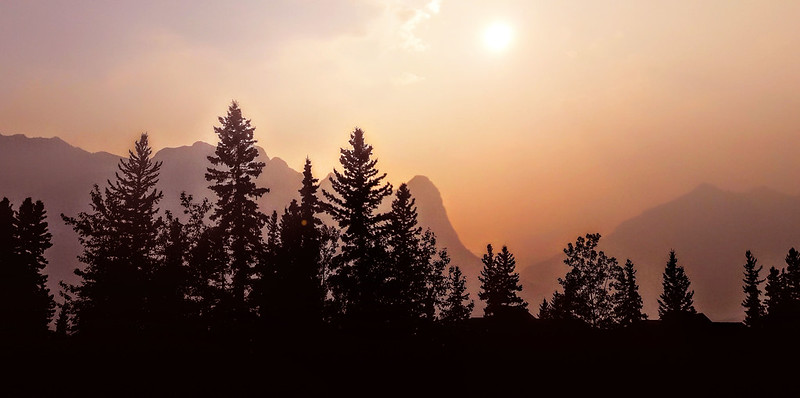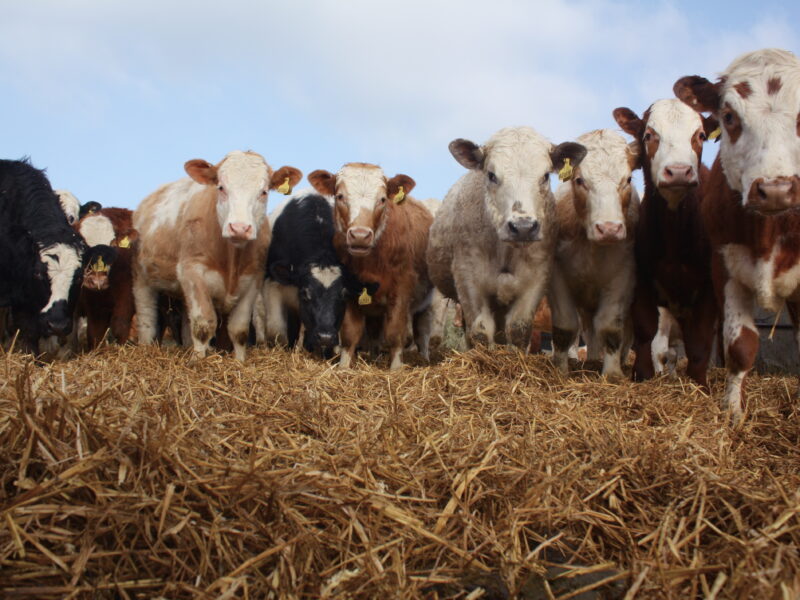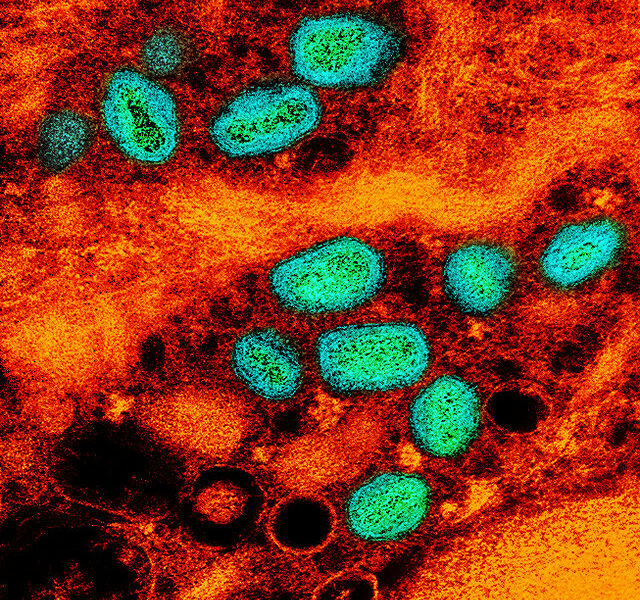By: Jacquelin Sauer
Image courtesy of Mariano Mantel; CC-BY-NC.
Smoggy skies, air quality warnings, and anxiety have swept across the nation as a response to the recent spike of wildfires in Canada. In Canada, more than 100,000 people have been forced to leave their homes as uncontrollable flames and smoke sweep across the coast.1 In the United States (U.S.), schools were closed, flights were canceled, and Americans were encouraged to stay inside as smoke covered the sun.2,3 If the current rate of fire activity in Canada persits, the country will experience its worst wildfire fire season in history and the Air Quality Index (AQI) in both Canada and the U.S. will continue to hit record highs.2,3
Current Situation
So far, a total of 2,706 fires have broken out across Canada this year (January 1, 2023-June 19, 2023).4 As of June 19 the Canadian Interagency Forest Fire Centre (CIFFC) reported 422 active fires burning across 13 provinces, of which 203 fires were considered out of control.5 The higher-than-normal fire activity across the country, which is predicted to continue throughout the 2023 wildland fire season (May-September), is due to ongoing drought and warm temperatures.6 Many Canadian cities, including Fort Chipewyan, Hinton, and Red Deer, continue to experience poor air quality due to the spread of wildfire smoke.7
The air quality in the U.S. began to plummet on Tuesday, June 6, as winds blew wildfire smoke south across the Canadian border.3,8 In the U.S., air quality alerts have been issued in southeast Michigan, Ohio, northern South Carolina, North Carolina, northern Virginia, Maryland, Delaware, eastern Pennsylvania, New York, Vermont, Massachusetts, Connecticut, Rhode Island and western New Hampshire.9,10 On Wednesday June 7, New York City reported an AQI of 405 ppm, the worst AQI recorded in New York’s history and the worst air quality of any big city in the world.2,3,8
Public Health Implications
Wildfire smoke contains high levels of pollutants and fine particulates and dangerous levels of PM2.5. PM2.5 is particularly harmful to humans as it can be inhaled deep into the lungs and travel into the bloodstream due to its small size.11,12,13 Exposure can cause inflammation of the airway and other organs including the heart, kidney and liver, triggering short-term effects, such as coughing, wheezing, difficulty breathing, watery eyes, and rapid heart rate.11,12,13 Individuals with cardiovascular diseases and respiratory diseases, such as asthma, emphysema, and chronic obstructive pulmonary disease (COPD), can experience increased flare-ups that may lead to hospitalization.11 In extreme cases, long-term exposure may lead to increased risk of heart attack, stroke, and lung cancer.11,12,13 While everyone is at risk of harm from wildfire smoke, elderly, young children, pregnant women, individuals experiencing homelessness, those with pre-existing health conditions, and those who work outdoors are the most vulnerable to these adverse health events.11,12,13 In addition, the effects of wildfires can have negative impacts on mental health and well-being. Individuals who are at risk of or have lost their home, community, or loved ones due to wildfires may experience anxiety, depression, panic attacks, and lack of sleep.11
Air pollution is a health equity issue. Research has shown that Black, Asian, Hispanic, Latino and low-income populations are exposed to fine-particulate pollution far more than other groups.13 Individuals who belong to these minority groups have increased rates of chronic conditions, are more likely to be frontline workers, more likely to be unable to afford to evacuate their homes, and may struggle to access well-ventilated housing and workplaces and affordable healthcare, putting them at an elevated risk of long-term exposure and adverse health outcomes of hazardous wildfire smoke.12,13
What Can Be Done?
Air quality alerts are being lifted across the U.S. as fire activity in Canada slows, yet it is still early in the Canadian wildfire season.14 As temperatures continue to increase throughout the summer, we may see additional spikes of wildfires in Canada. There are ways to mitigate the negative effects of wildfires at both the community and individual levels. At the community level, it is the government’s responsibility to ensure that emergency preparedness plans and public health alerts are in place and easily accessible.11 At the individual level, people who live in areas affected by wildfires and smoke should:
- Limit their exposure and stay inside when possible
- Exercise indoors to prevent excessive inhalation of fine particulates
- Monitor their local air quality to make daily decisions (i.e., Is it safe to walk outside?)
- Wear a mask that can filter out fine particulate matter13
Resources
Below are some resources to help navigate the situation at hand:
- Monitor, track and calculate the Air Quality Index (AQI) in your area: https://www.airnow.gov/
- Monitor and track affected provinces and active fires in Canada: https://ciffc.net/.
- Interactive AQI map for the U.S.: https://abcnews.go.com/US/wildfire-smoke-map-us-cities-states-impacted-canadian/story?id=99865946
- Interactive AQI list for Canada: https://weather.gc.ca/airquality/pages/index_e.html
Sources:
- https://www.washingtonpost.com/climate-environment/2023/06/07/canada-wildfires-weather-air-quality/
- https://www.nytimes.com/2023/06/07/world/americas/canada-wildfires.html
- https://www.theguardian.com/world/2023/jun/08/canada-wildfires-smoke-linger-us-days-officals-warn
- https://ciffc.net/summary
- https://ciffc.net/
- https://www.canada.ca/en/natural-resources-canada/news/2023/06/the-government-of-canada-provides-update-on-wildfire-seasonal-outlook-and-outlines-response.html
- https://weather.gc.ca/airquality/pages/index_e.html
- https://www.foxweather.com/weather-news/tracker-tracking-pollution-poor-breathing-air-fires
- https://www.washingtonpost.com/weather/2023/06/06/northeast-wildfire-smoke-canada-pollution/
- https://www.npr.org/2023/06/06/1180508544/heres-how-canadian-wildfires-are-worsening-air-quality-across-the-u-s
- https://www.ctvnews.ca/health/very-very-hard-to-breathe-experts-call-wildfires-a-major-public-health-concern-for-canada-1.6431997
- https://www.statnews.com/2023/06/07/the-canada-wildfires-are-exposing-the-harmful-effects-and-health-inequities-of-air-pollution/
- https://www.washingtonpost.com/weather/2023/wildfire-smoke-air-quality-health-exposure/
- https://www.cbsnews.com/philadelphia/news/air-quality-philadelphia-canada-wildfire-smoke-aqi/


